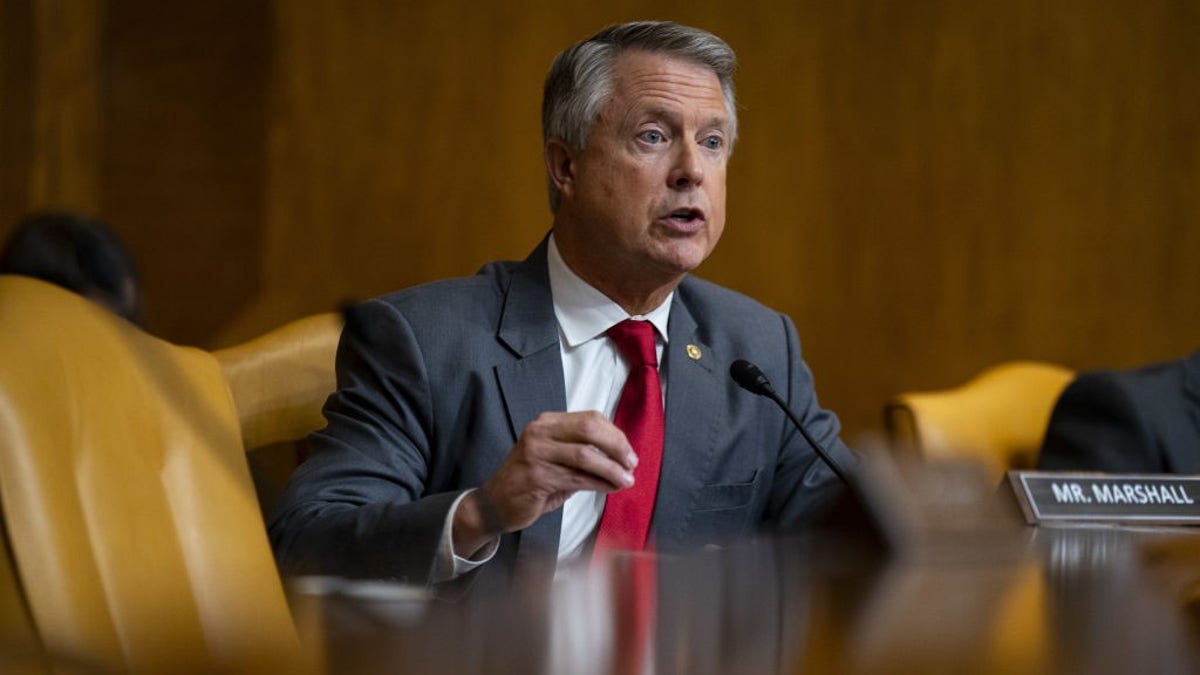Biden mandates production of electric vehicles
Fox News White House correspondent Peter Doocy has the latest on the controversial new rule on 'Special Report.'
When President Biden said that Americans can "buy any kind of car they want," he failed to factor in new emissions standards his administration is putting in place that will reduce consumer choice, industry experts say.
During a speech delivered on Tuesday outside the Rose Garden, Biden focused on protecting U.S. jobs from unfair foreign trade practices and promised to not allow China to control the market for internal combustion engines or electric vehicles (EVs).
"I want to make this clear, notwithstanding what the other guy is saying – can buy any kind of car they want… but we're never going to allow China to unfairly control the market for these cars, period," he said, as "the other guy" appeared to be a reference to former President Trump, who made waves for predicting an auto industry "bloodbath" if Democrats continue their EV push.
Geoff Moody is senior vice president of American Fuel & Petrochemical Manufacturers (AFPM), a trade association representing companies like Chevron, ExxonMobil, Koch and others. He said that Biden's Environmental Protection Agency (EPA) regulation "is functionally a ban on sales of most new gas cars by 2032."
BIDEN CRACKS DOWN ON DIESEL TRUCKS IN BID TO FIGHT CLIMATE CHANGE, REDUCE EMISSIONS
"The policy is going to both limit the availability of new gas cars and push the cost of remaining gasoline-powered vehicles out of reach for most Americans," he said, adding that EPA compliance scenarios he has viewed project new internal-combustion-engine car sales to fall drastically from 84% at present to below 30% in 2032.
"The whole point of the rule is to push American drivers toward electric vehicles by limiting their other options," Moody said.
American Petroleum Institute executive Will Hupman echoed some of that sentiment, predicting that it could effectively eliminate most new gas-powered vehicles in the future.
In April, Sen. Roger Marshall, R-Kan. launched an effort to stymie the new restrictions via the Congressional Review Act, which allows Congress to make an expedited attempt to invalidate new agency rules.

Kansas Sen. Roger Marshall is spearheading an effort to stop President Biden's new emissions rules. (Getty Images)
Marshall told Fox News Digital on Thursday the president's comment sounded like a "political-showboating" response to such objections.
"Now that he’s facing backlash, Biden is trying to walk back his irresponsible EV mandates that drive American jobs and our auto-manufacturing overseas," Marshall said. "He hopes he can buy some political goodwill from the unions by flip-flopping on these tariffs while simultaneously stabbing them in the back with unrealistic goals of an all-electric transportation system."
Meanwhile, Sen. Dan Sullivan, R-Alaska, who co-sponsored a similar effort, told Fox News Digital the president is either "being dishonest or he is unaware that his administration has been hijacked by far-left extremists trying to regulate combustion engines out of existence by finalizing regulations that amount to an EV mandate."
GREEN GOVERNANCE THE NEW GUISE FOR MERCANTILISM, WILL LEAD TO GLOBAL INSTABILITY: EXPERT
Sullivan, whose state has pushed back often against many Biden-era environmental rules, added that if Biden remains serious about a transition to electric vehicles, then he should reverse an administration move that restricted access to the Last Frontier's Ambler Mining District, where rare earth minerals required for EV batteries can be extracted.
"The United States desperately needs [those minerals] not only if the president wants companies to build more EVs, but for important defense projects," Sullivan said, arguing against continuing to import them instead.
While Biden's EPA's emissions standards do not constitute a blanket prohibition on internal combustion engines, automobile and fossil fuel trade organizations claim that to them, they may as well have.
Delving into the specifics of the new regulations, the AFPM wrote in a fact sheet that the average car tailpipe emission would have to be 85 grams per mile, which it described as unrealistic. It claimed that under a carbon credit-based system within the new rules, not every buyer who wants a new gas-powered car can get one if a dealer has not sold enough EVs.
When asked about Biden's comments and consumer choice concerns in regard to the new mandates, a spokesperson for General Motors said it is continuing to grow its electric vehicle fleet while retaining a broad suite of gas-powered options for customers.
The spokesperson also called it "challenging."
"The flatter curve approach will allow for the continued development of the EV market and the necessary support like infrastructure and supply chain. We are still awaiting final rules from the Department of Transportation on CAFE regulation[s] to fully understand how [they] will impact our portfolio of products."
The EPA pushed back on the criticisms and characterizations of its new standards, telling Fox News Digital the new rules actually expand consumer choice and pass on cost savings to drivers in the area of $62 billion worth of reduced yearly fuel and maintenance costs.
CLICK HERE TO GET THE FOX NEWS APP
"By encouraging continued development of more efficient vehicles, EPA’s standards are also projected to save Americans on average about $6,000 over the lifetime of a new model year 2032 light-duty vehicle, compared to a vehicle meeting the 2026 standards, by accelerating adoption of technologies that reduce fuel and maintenance costs as well as pollution," an EPA spokesperson said. They denied the new regulations constitute a mandatory transition from internal combustion to electric power.
A White House spokesperson echoed much of the EPA's sentiment, telling Fox News Digital that Biden is "investing in a future that is made in America by American workers as we position the United States to lead the clean energy future." They credited the Inflation Reduction Act with making electric cars more affordable and claimed more American drivers are purchasing EV cars every day.
Several congressional Democrats who publicly voiced support for Biden's new regulations did not return requests for comment on the president's recent remarks.






